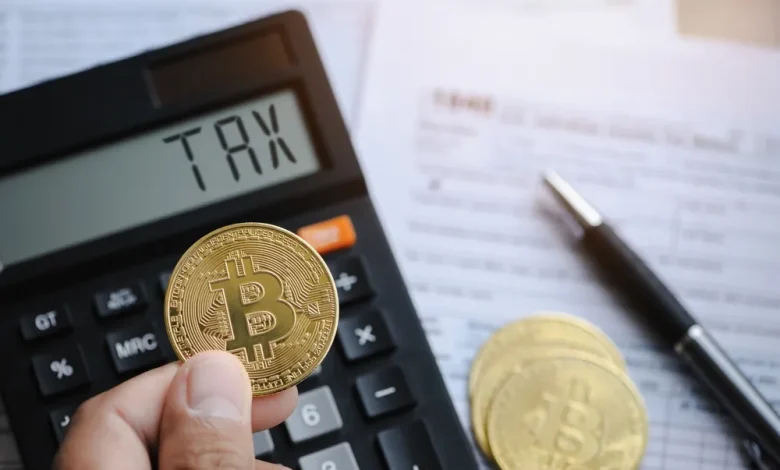Understanding Crypto Taxes in 2025: A Beginner’s Guide

In 2025, owning crypto is exciting, and of course, a money opportunity, but not tax-free. In fact, if you own, trade, or earn crypto in 2025, taxes will always be applied. Many people still think they don’t owe anything unless they convert crypto to cash, but that’s not true.
The Internal Revenue Service (IRS) treats cryptocurrency as property, not currency, which means you may owe taxes any time you dispose of it. That includes selling it, trading one coin for another, or spending it.
If the price of your crypto goes up between the time you receive it and the time you sell it, the gain is taxed. If you held the crypto for under a year, it’s taxed as short-term capital gains, which follow your normal income tax rate, from 10% to 37%.
If you held it for more than a year, you qualify for long-term capital gains rates, which are lower, usually between 0%, 15%, or 20%, depending on your income.
If you sell your crypto for less than you paid, that’s a loss. However, you can use this loss to reduce your taxes. In fact, you can subtract up to $3,000 of these losses from your income each year.
You can also owe tax if you earn crypto. This happens when you get paid in crypto, receive rewards from staking, mine coins, or get free tokens in airdrops or referrals. In these cases, the IRS says the value of the crypto at the time you receive it is taxed like regular income.
What Actions Can Trigger Crypto Taxes
Crypto taxes don’t only kick in when you cash out. When we say disposing of digital assets, it often includes using crypto to buy something, trading coins, or sending crypto to pay for a service. “You may have to report transactions with digital assets such as cryptocurrency and NFTs,” according to Gordon Law.
If you buy a coffee with Dogecoin or swap Ethereum for Solana, you’ve triggered a taxable event. The IRS doesn’t care whether you made or lost money; it only cares that the asset was used or transferred in a way that counts as a disposal.
Meanwhile, sending crypto to your own wallet doesn’t trigger a tax bill, but sending it to someone else in exchange for goods or services does. These rules make it important to track everything. Keep records of the date, the amount of crypto, its value at the time, and what the transaction was for.
However, some crypto activities are not taxable, for instance, buying coins with cash and holding them, or transferring coins between your own wallets. But it’s important not to just assume anything; always check.
What’s Changed in 2025?
Some changes came in as of January 2025. Centralized crypto exchanges like Coinbase and Kraken are now required to send a new tax form called 1099-DA to both you and the IRS. This form lists your crypto trades, sales, and any profits or losses.
If the numbers don’t match, you could get a warning letter. This means you need to be extra careful about tracking every transaction and making sure your report is accurate.
Form 1099-DA will make crypto taxes more visible to the IRS. Until now, reporting has been mostly self-managed. With this new form, underreporting will be easier for the IRS to catch.
To stay compliant, use crypto tax tools like CoinLedger, Koinly, or TurboTax Crypto. These programs connect to your wallets and exchanges. They can track your trades, help calculate your gains or losses, and create reports for you.
Tips to Pay Less Tax (Legally)
Try and hold your crypto longer than a year if you can. This puts you in the lower long-term capital gains bracket. Consider selling during a year when your income is lower. This can reduce how much tax you owe. The less you make, the less the IRS takes.
If you want to avoid taxes legally, donating crypto is also an option. When you give crypto to a registered charity, it’s not taxed, and you can deduct the full value.
Avoid common mistakes like ignoring small transactions or forgetting about free tokens you received in an airdrop. Even small events are taxable. Don’t mix cost basis methods; stick with one, like FIFO (First In, First Out), unless your country allows you to choose another.
Always file by the deadline. Make sure to file your taxes by April 15, 2025. If you need more time, you can ask for an extension until October, but you still need to file.
Bottom Line
You knowing how to use the tax works shouldn’t be just about avoiding troubles with the regulators, it also helps you in the long run.
For instance, if you keep a good, clean record and also try to follow the rules, you can save more money in the long term. It also makes it easy if you ever decide to take a loan or buy a property. In short, staying on top of your taxes now means less stress for you in the future.
Also Read: Gate US Launches Compliant Crypto Exchange for U.S. Users



